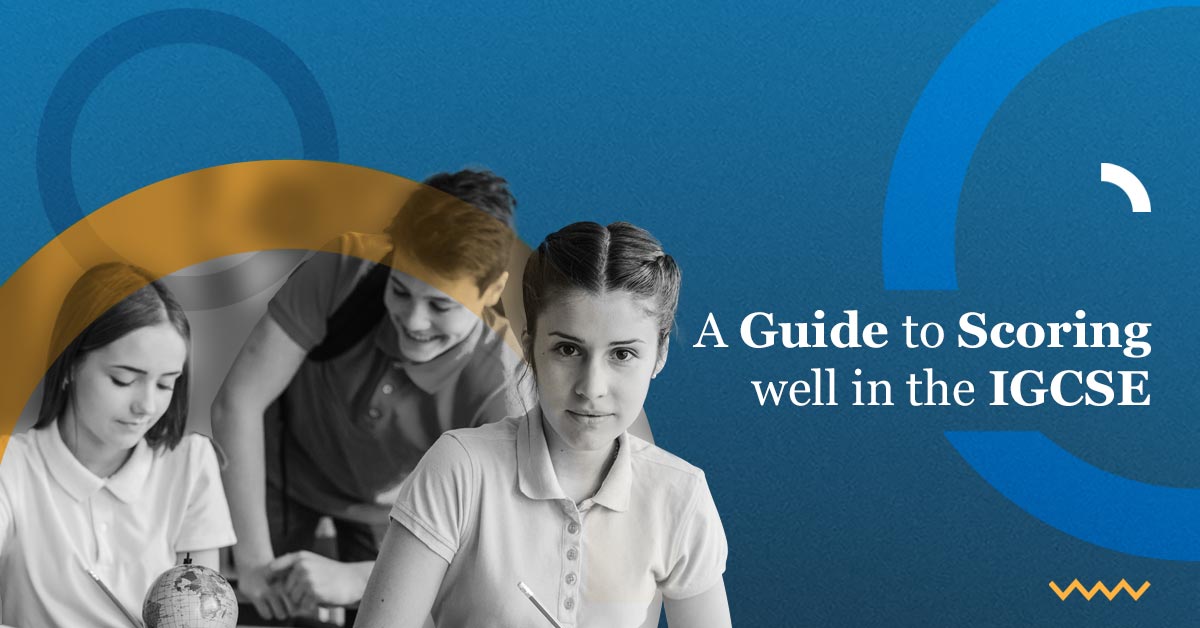The Cambridge IGCSE (International General Certificate of Secondary Education) is an internationally recognised curriculum designed specifically for 14–16-year-olds. The programme features a rigorous academic standard while promoting critical thinking, creativity and problem-solving skills in students. This two-year programme is set and marked by the University of Cambridge, where Indian students write the March series of the IGCSE final exam. The assessment includes oral, written and practical components and grades A* to G are awarded to students based on their achievement. Here is an IGCSE study guide for students aiming to score an A in their final assessment.
Students often find themselves frantically flipping through their notes one night before a mock exam. Due to the short time frame, students are confused about what to study and what to skip. This is not a sustainable habit and can be more dangerous in the long run. While wondering how to study for IGCSE, you need to understand that your long-term goal is scoring in the finals. Getting a good score in the mock tests is great only if you also score well in the finals. Having a long-term study plan not only aids your final score but also keeps you at the top of the class in every internal test.
Students have a list of recommended books that they study from in school and at home. However, one of the best study tips for IGCSE students is to seek out other sources as well. Cambridge sets the syllabus for the grade and different publishers release books based on the syllabus. Every book has a different approach to the topics and gives varying importance to them. By studying from a single textbook, you are running the risk of encountering gaps where the book hasn’t given enough importance to a topic. By studying from different books, students can compensate for this gap and be better prepared to answer questions on any topic.
After studying for 6-8 hours a day, students should test their knowledge. When you decide how you want to study for IGCSE, make sure you consider solving past papers. This way you can check your progress and ensure that you are studying topics that are important and relevant. Many students avoid solving papers in the beginning because they haven't covered many topics but they forget that many books have exam paper questions for each chapter. Students can start by solving these and as the syllabus progresses, they can search for mock papers or past exam papers to solve and practice.
While this tip from the IGCSE study guide applies to every subject, it is extremely crucial for subjects you have difficulty with. Staying ahead doesn't mean you have to solve all past papers for the subject or read a chapter multiple times. You can simply choose to read a chapter in advance before it is taught in the class. This way, you will have an idea about the topic and your doubts will be clarified instantly. By reading a topic in advance, you are giving yourself enough time to learn it before the exams and you will not have to rush through topics at the last minute.
It is crucial to take notes in class throughout the IGCSE course. Students need to take notes on the important topics as they are taught in class. While the details of the concepts can be filled in later during self-study, creating notes on the topics covered by the educator is very important. One of the most useful tips for IGCSE students is to have notes on the key concepts as it might come in handy during last minute revision. Having a collection of such short notes for every subject will ensure that you are prepared for the year-end exams.
Follow these steps to ace your IGCSE tests. Just remember to put in the effort because there are no shortcuts to success. Getting a good grade takes work and dedication, and as long as you are putting in the hard work, you will excel in your finals.
© Knowledgeum
